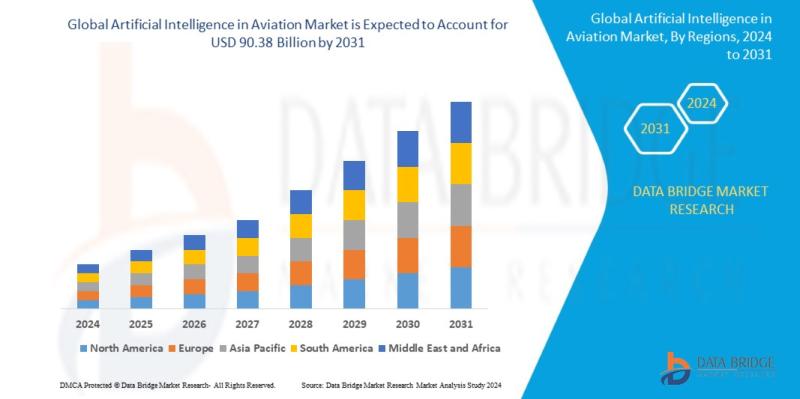
Growth of Artificial Intelligence in Aviation
The global landscape of artificial intelligence (AI) in aviation is experiencing rapid transformation. Recent research anticipates that this sector will soar to an impressive valuation of USD 90.38 billion by 2031, marking a remarkable compound annual growth rate (CAGR) of 46.2%. This exponential growth is driven by various technological advancements and innovative applications within the industry.
AI technologies are redefining operational paradigms in aviation through several offerings including hardware, software, and services. Key technologies fueling this trend encompass computer vision, machine learning, natural language processing, and context-aware computing. Critical applications range from dynamic pricing and virtual assistants to flight operations, smart maintenance, and enhanced training protocols.
Market Dynamics and Key Players
The rise of AI in aviation is not only reshaping operational standards but also significantly enhancing customer experiences. Airlines and airports are increasingly leaning on AI-driven solutions for predictive maintenance, efficient flight operations, and improved passenger service.
Prominent companies driving this growth include **IBM Corporation**, **Intel Corporation**, **NVIDIA Corporation**, **Airbus SE**, and **Boeing**. These organizations are at the forefront of innovation and are deploying cutting-edge technologies to meet the evolving demands of the aviation sector.
Equipped with advanced AI algorithms, these players are optimizing fleet management, refining route planning, and augmenting customer service capabilities, ultimately leading to a revolution in air transportation and operational efficiency.
Future Endeavors and Technology Integration
As we look toward 2024, the AI in aviation market is anticipated to witness significant advancements. Enhanced efficiency and stringent safety protocols are at the heart of this evolution, spurred by the integration of AI in unmanned aerial vehicles (UAVs) and operational frameworks.
By 2031, AI’s integral role is expected to expand further, introducing significant advancements in autonomous aircraft technology. The concept of pilotless planes is not a distant dream but is rapidly becoming a reality, aiming to minimize costs while heightening safety standards across the aviation landscape.
Furthermore, advancements in AI-powered predictive maintenance, operational efficiency, and passenger-centric services are poised to create more streamlined travel experiences. Incorporation of these technologies in air traffic management will usher in safer airspace management and decreased travel delays.
HAL149’s Contribution to AI Efficiency
HAL149 is a cutting-edge AI company focused on developing tailored AI assistants for businesses. By leveraging custom-trained GPT models, HAL149 enhances operational efficiency through automation in customer service, content generation, lead generation, and social media management.
Our mission aligns human efforts with AI capabilities to foster growth and streamline business operations. At HAL149, we believe that AI is a tool for empowering people, not replacing them. For more information on our services, visit us at HAL149, or get in touch through our contact form or email us at hola@hal149.com.
